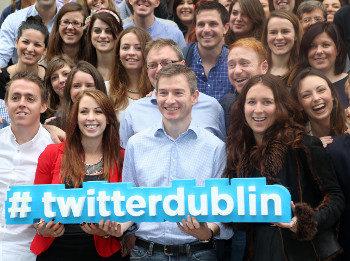Falling earnings will lead to a unique recovery

Employment is growing strongly once again, most economists are predicting strong economic growth in 2014 and Ireland successfully exited the EU/IMF bailout last month. However, this good news is only slowly percolating through to the domestic economy with 2013 VAT receipts more than 2% behind target and the value of retail sales still falling. Dan White does the math
21 January 2014
At the start of 2014 there are, after more than five years of unremitting bad economic news, at least some grounds for cautious optimism with both the ESRI and IBEC predicting economic growth of almost 3% this year. The ESRI reckons that the economy, both GDP and GNP, will grow by 2.7% in 2014 while IBEC is pencilling in GDP growth of 2.8% and GNP growth of 2.3% for the coming year. If these forecasts were to be achieved then 2014 would be the best year for the Irish economy since 2004.
Jobs growth and property price rises
Underpinning this renewed optimism has been the resumption of employment growth. The Irish economy shed 325,000 jobs, 15% of the total number of people at work, between the third quarter of 2007 and the first quarter of 2012. However, the number of people with jobs has grown by 74,000 since then, with a 29,000 increase being recorded in the third quarter of 2013 alone.
Other signs of renewed life in the Irish economy include an apparent bottoming out in property prices and December’s exit from the EU/IMF bailout. So far so good so why, if the economy is apparently improving, doesn’t it feel like a recovery to most of us?
Reduced wages
While there are certainly some encouraging signs coming from the economy, for every positive indication there seems to be a matching negative one. Yes, employment may be rising but earnings are falling, with a 2.4% reduction in average weekly earnings being recorded in the 12 months to the third quarter of 2013. It is almost certainly this fall in average earnings that has prevented the increase in the number of people in work from lifting consumer confidence and boosting the domestic economy.
There is also less to the apparent "recovery" in the housing market than meets the eye. Yes, prices are rising, with an average increase of 5.6% being recorded in the 12 months to November. But these increases are being achieved on tiny volumes with just 18,000 houses and apartments, out of a nationwide total of just under 2 million, changing hands in the first nine months of 2013. With mortgage lending down more than 93% from its 2007 peak, over a third of last year’s transactions were cash deals. One should thus be wary of drawing too many conclusions from the recent uptick in house prices, which is in practice largely confined to a relative handful of transactions in Dublin and the other large cities.
Banking problem
And then of course there is the unresolved banking crisis. It was the escalating cost of bailing out the banks, up to €64bn and counting, that finally pushed the Irish state into the arms of the Troika in November 2010. And that might not be an end of it. The ECB is due to publish the results of its "stress tests" of Eurozone banks later this year. With the Irish-owned banks having €31bn-€32bn of distressed mortgages on their books and a further €30bn of loans to SMEs – at least half of which are impaired – what are the chances of one or more of them needing even more cash from the taxpayer?
Retailers know only too well that improved employment numbers and the prospect of renewed economic growth have yet to feed into more money being handed over at the checkout. Although the volume of non-motor retail sales rose by 1.6% in the year to November 2013, the value of those sales fell by 0.2% over the same period. While the December retail sales figures hadn’t been published by the time this article went to press, Retail Excellence Ireland has reported that its members experienced a fall in the value of their pre-Christmas sales.
Low tax returns
Another indicator that all is not well for retailers and the domestic economy was the disappointing 2013 VAT receipts with the total €10.33bn being €224m or 2.1% behind target. Intriguingly income tax returns were also slightly behind target, about 0.6%, in 2013.
So what’s happening? The fall in average earnings, despite the increase in the number of people at work, almost certainly provides a clue. Social Protection Minister Joan Burton and her Labour Party cabinet colleagues’ proudest boast is headline weekly social welfare payment rates haven’t been reduced on their watch.
This is true but only up to a point. Last October’s budget reduced the jobseeker’s allowance paid to those up to the age of 24 to just €100 per week while those long-term unemployed aged up to 25 now qualify for a weekly payment of €144. This compares to the €188 per week paid to long-term unemployed people aged over 25.
Cheaper labour
While this might not technically count as a "cut" in weekly social welfare rates, that’s certainly how it felt to those on the receiving end. Is it reasonable to assume that at least some of the increase in employment is younger people being effectively priced back into the labour market?
While incentivising young people to take up low-paid jobs is still preferable to allowing them to languish on the dole and become long-term unemployed, the fact that this is almost certainly what is driving the increase in recorded employment, does go a long way towards explaining the lack of a "feel good" factor that could normally be expected to accompany such strong levels of job creation.
The reluctance of consumers to open their wallets points to a larger reality: Even if the economy is finally on the mend, such has been the extent of the post-Celtic Tiger bust that any upturn is going to be very slow and unsteady. The financial and psychological scars will take many years to heal.
While any recovery is welcome, after an economic collapse like no other, we may now be about to experience an equally unique recovery.



 Print
Print





Fans 0
Followers